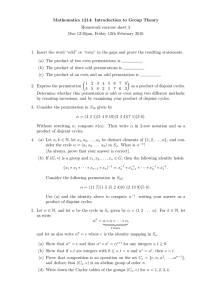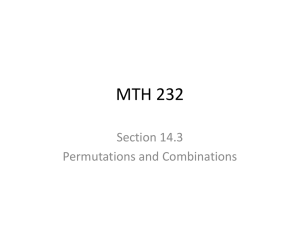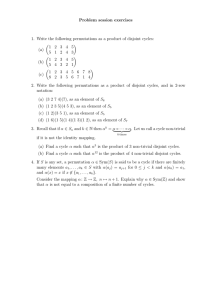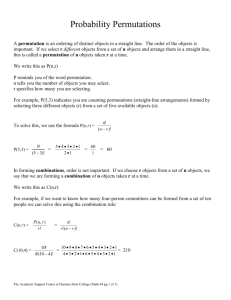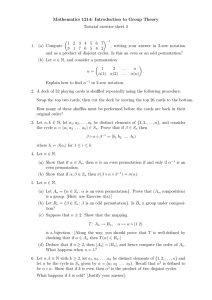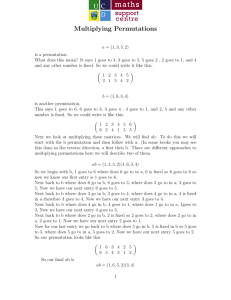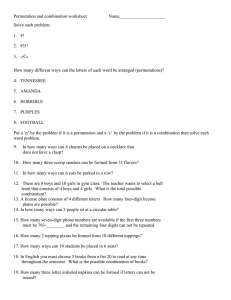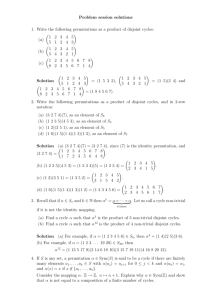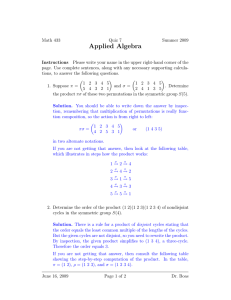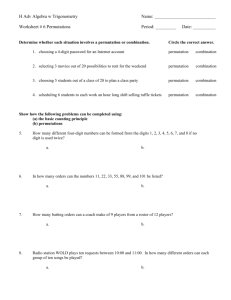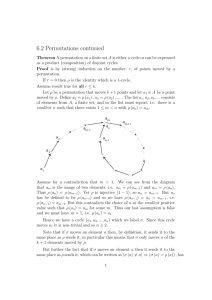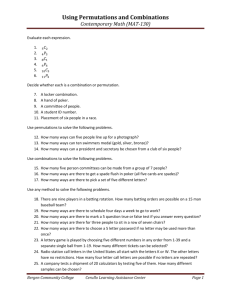MATH 433 March 6, 2015 Quiz 6: Solutions
advertisement
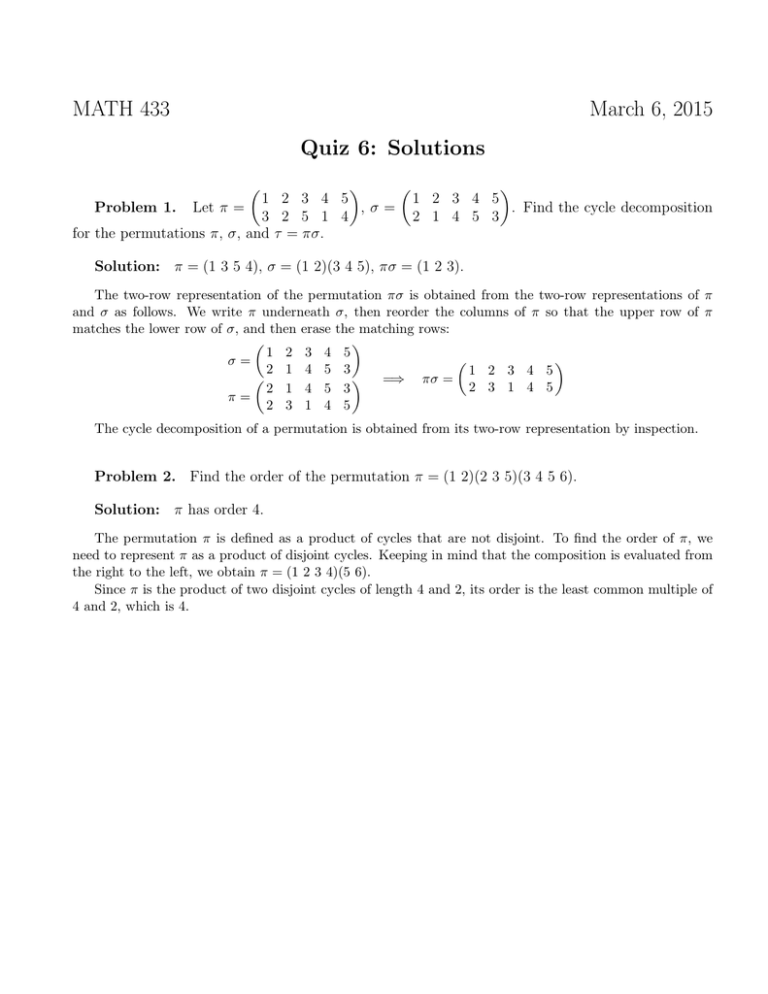
MATH 433 March 6, 2015 Quiz 6: Solutions 1 2 3 4 5 1 2 3 4 5 Problem 1. Let π = ,σ= . Find the cycle decomposition 3 2 5 1 4 2 1 4 5 3 for the permutations π, σ, and τ = πσ. Solution: π = (1 3 5 4), σ = (1 2)(3 4 5), πσ = (1 2 3). The two-row representation of the permutation πσ is obtained from the two-row representations of π and σ as follows. We write π underneath σ, then reorder the columns of π so that the upper row of π matches the lower row of σ, and then erase the matching rows: 1 2 3 4 5 σ= 2 1 4 5 3 1 2 3 4 5 =⇒ πσ = 2 3 1 4 5 2 1 4 5 3 π= 2 3 1 4 5 The cycle decomposition of a permutation is obtained from its two-row representation by inspection. Problem 2. Find the order of the permutation π = (1 2)(2 3 5)(3 4 5 6). Solution: π has order 4. The permutation π is defined as a product of cycles that are not disjoint. To find the order of π, we need to represent π as a product of disjoint cycles. Keeping in mind that the composition is evaluated from the right to the left, we obtain π = (1 2 3 4)(5 6). Since π is the product of two disjoint cycles of length 4 and 2, its order is the least common multiple of 4 and 2, which is 4.
